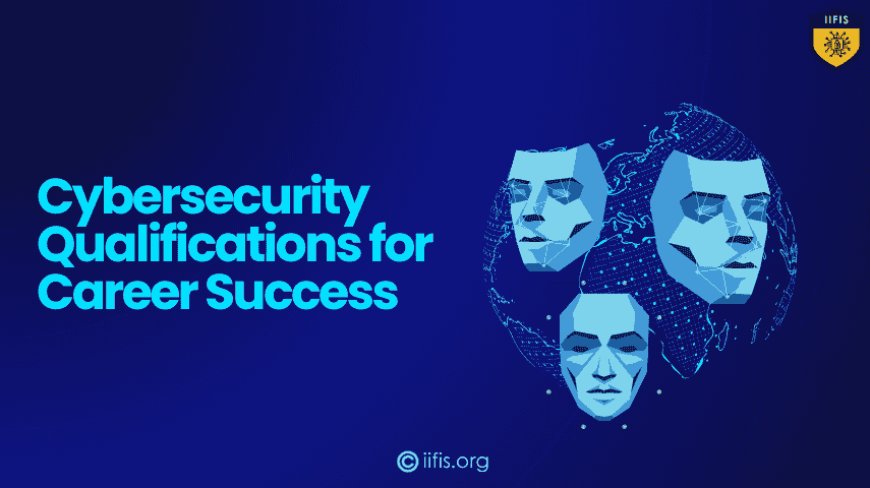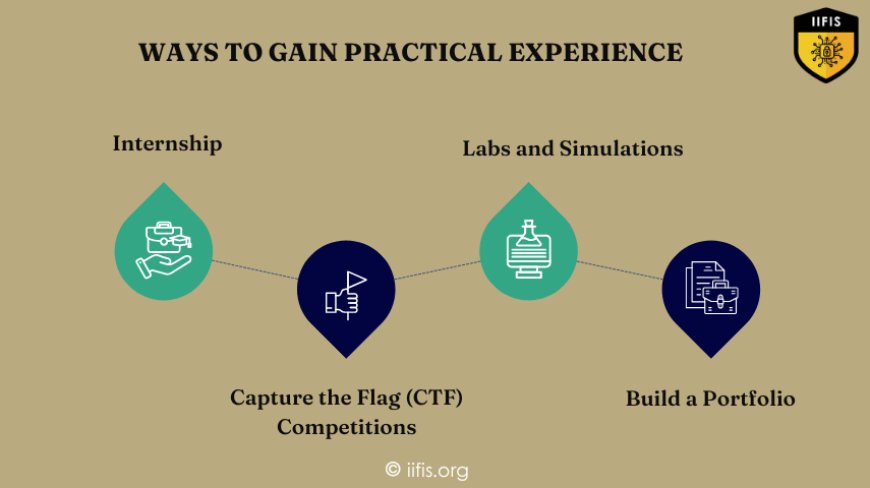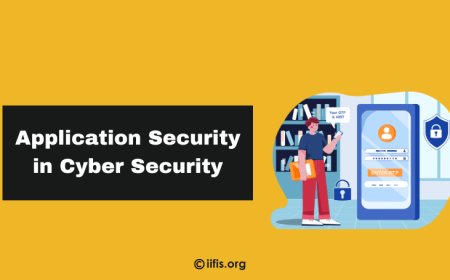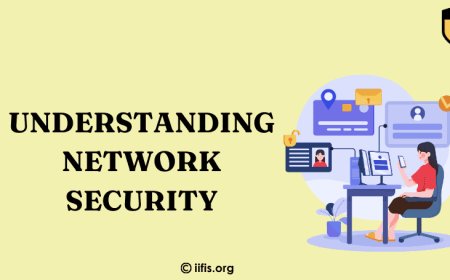Essential Cybersecurity Qualifications for Career Success
Understand key Cybersecurity Qualifications to excel, from mastering practical skills to earning industry-recognized certifications for a successful career in cybersecurity

Cybersecurity is a fast-growing field, and having the right qualifications is essential to succeed. With the increasing threat of digital attacks, businesses, governments, and individuals depend on cybersecurity professionals to protect their data and systems. When I started in this field, I learned that success isn’t only about technical skills—it's also about the right mix of certifications, education, hands-on experience, and personal skills. Whether you're just starting or looking to advance, a clear strategy for developing your qualifications is crucial. I’ll share the key qualifications you need to thrive in cybersecurity and offer tips to help you stand out in this competitive industry.
Why Cybersecurity Qualifications Matter
The demand for cybersecurity professionals is increasing as online threats become more common and complex. However, the field is also highly competitive. Employers want individuals who not only have technical knowledge but can also show their skills through education, certifications, and practical experience.
Key Benefits of Cybersecurity Qualifications:
-
Career Opportunities: Many cybersecurity roles require specific certifications or degrees as a minimum qualification.
-
Higher earning potential: Professionals with recognized qualifications often earn higher salaries.
-
Credibility and Trust: Certifications and degrees validate your skills and demonstrate your commitment to the field.
-
Staying Updated: cybersecurity is ever-evolving, and certifications help you stay current with industry trends and threats.
Must-Have Cybersecurity Certifications
Certifications are the cornerstone of a successful cybersecurity career. They validate your technical knowledge and often serve as a prerequisite for many roles. Here are the most essential certifications to consider:
Beginner-Level Certifications:
-
CompTIA Security+
-
Why It’s Important: This is a foundational certification for anyone starting in cybersecurity. It covers basic security concepts, network security, and risk management.
-
Best For: Beginners with little to no prior cybersecurity experience.
-
Certified Ethical Hacker (CEH)
-
Why It’s Important: CEH focuses on penetration testing and ethical hacking techniques. It’s ideal for those aspiring to understand how attackers operate.
-
Best For: Aspiring ethical hackers and penetration testers.
Intermediate-Level Certifications:
-
Why It’s Important: Recognized globally, CISSP is a gold standard for experienced cybersecurity professionals. It covers topics like security architecture, engineering, and management.
-
Best For: Professionals with at least five years of experience.
-
Why It’s Important: CCSM focuses on managing and governing cybersecurity programs. It’s ideal for individuals aiming for leadership roles.
-
Best for: mid-level professionals targeting management positions.
Advanced-Level Certifications:
-
GIAC Security Expert (GSE)
-
Why It’s Important: GSE is one of the most prestigious certifications, requiring in-depth knowledge of advanced cybersecurity concepts.
-
Best For: Highly experienced professionals looking to validate their expertise.
-
CompTIA Advanced Security Practitioner (CASP+)
-
Why It’s Important: CASP+ is designed for technical experts working on enterprise-level security solutions.
-
Best For: Professionals in technical leadership roles.
Academic Qualifications That Boost Your Career
While certifications are critical, formal education is equally important in building a strong foundation in cybersecurity. A degree not only enhances your technical knowledge but also opens doors to advanced roles.
Relevant Degrees to Consider:
Bachelor’s Degrees:
-
Cybersecurity: Focuses entirely on security concepts, making it ideal for those aspiring to work in cybersecurity.
-
Computer Science or Information Technology: Provides a broad understanding of computing, which is highly relevant to cybersecurity.
Master’s Degrees:
-
Master’s in Cybersecurity: A specialized program that offers advanced knowledge and leadership skills in the cybersecurity field.
-
MBA with a Cybersecurity Focus: Ideal for professionals who want to combine business acumen with cybersecurity expertise.
Online courses and bootcamps:
-
Affordable and flexible, these programs are excellent for building skills and transitioning into cybersecurity, especially for those coming from other fields.
Certifications vs. degrees:
-
Degrees provide theoretical knowledge and are often required for high-level positions.
-
Certifications validate specific skills and are quicker to obtain.
Gaining Practical Experience
Practical experience is the bridge between theoretical knowledge and real-world application. Employers prioritize candidates who have hands-on experience solving real security challenges.
Ways to Gain Practical Experience:
-
Internship: Interning at IT or cybersecurity companies helps you gain real-world experience. You'll work on actual projects, learn from professionals, and understand the challenges businesses face, which can also help you build a network for future job opportunities.
-
Labs and Simulations: Websites like TryHackMe, Hack The Box, and Cyber Ranges offer virtual labs where you can practice your skills. These platforms let you work on realistic cybersecurity challenges, helping you build and improve your technical abilities safely.
-
Capture the Flag (CTF) Competitions: CTF challenges are fun events where you can solve hacking puzzles in a controlled environment. They help you sharpen your skills in areas like problem-solving, cryptography, and penetration testing while also gaining recognition in the cybersecurity community.
-
Build a Portfolio: Creating a portfolio of your work, such as securing networks or finding vulnerabilities, shows potential employers what you can do. It’s a great way to prove your skills and stand out when applying for jobs

The Role of Soft Skills in Cybersecurity
While technical skills are the backbone of a cybersecurity career, soft skills are equally important. They help you communicate effectively, work well in teams, and solve complex problems.
Key Soft Skills for Cybersecurity:
-
Communication: Simplify technical issues so non-technical people can understand, helping everyone make informed decisions.
-
Critical Thinking: Solve problems quickly and effectively, especially when under pressure.
-
Collaboration: Work well with IT, management, and other teams to ensure security measures are effective.
-
Adaptability: Stay flexible and keep learning in a constantly evolving field.
Mapping Out Your Career Path
Success in cybersecurity requires planning. Whether you’re a beginner or an experienced professional, aligning your qualifications with career goals is essential.
Steps to Map Your Career Path:
-
Identify Your Goals: Decide which area of cybersecurity you want to focus on, like ethical hacking, security management, or something else.
-
Choose the Right Qualifications: Pick certifications and degrees that match your chosen path.
-
Stay Updated: Keep learning and stay aware of new technologies and emerging threats.
-
Network: Join professional groups, attend conferences, and connect with others in the field.
The cybersecurity field is both challenging and rewarding, offering endless growth opportunities. To succeed, you need a combination of cybersecurity qualifications, technical certifications, academic qualifications, practical experience, and soft skills. With the right qualifications, you can build a career that not only offers financial stability but also contributes to global digital security.
Now is the time to take action. Whether it’s earning your first certification, enrolling in a degree program, or gaining hands-on experience, every step brings you closer to a successful cybersecurity career.























